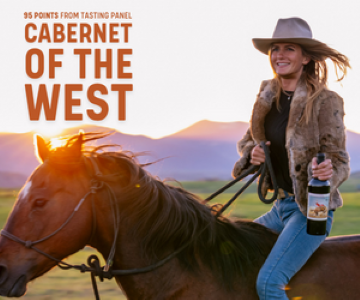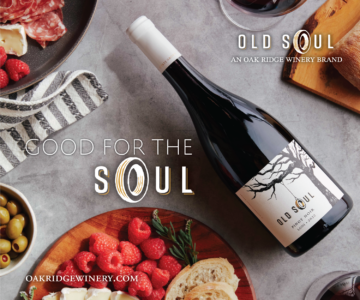This series highlights hospitality professionals who are responding to the industry crisis caused by the coronavirus pandemic in particularly creative, conscientious ways.
Israeli restaurant Safta became one of Denver, Colorado’s foremost dining destinations from the instant James Beard Award–winning chef Alon Shaya ventured beyond his home base of Louisiana to open it in 2018. To score a plum gig there, you’d better have one heck of a résumé.
Jen Lordan does, having held managerial roles at such major New York destinations as Blue Hill, The Dutch, and (gone-but-not-forgotten) Dovetail before moving to Denver. So when the general-manager position opened up, she was a shoo-in.

She started her new job as not only the GM but also the beverage manager of Safta in late February—less than a month before Colorado’s restaurants were ordered to close.
As she recalls, “I was just learning table numbers, the menu, everyone’s name. And I was getting my feet wet with Middle Eastern wine. It’s a very interesting and unusual beverage program; that was what initially attracted me.” Suddenly, she was facing a far darker challenge. In the week leading up to the shutdown, “We were trying not to close, looking for ways to cut down on guest contact. Wearing gloves. Not folding napkins when guests got up from the table—which broke all our hearts from a service perspective. Really trying to make sure we were doing everything in our power to maintain sanitation and safety for our staff and our guests.” But by Sunday, “Everyone pretty much knew what was gonna happen. We’d had a huge drop in reservations.” For the intrepid diners who did manage to show up, she says, “We made it a special evening. It was beautiful to watch the staff connect with people who’d been coming to the restaurant for a while.”
Not 48 hours later, Safta had pivoted to takeout and delivery, which Lordan calls “a really humbling business” insofar as there’s no reservation book to establish workflow: “Everything can come all at once.” Or not at all. But there were bright spots too. For one thing, Lordan says with a laugh, “We ended up hiring our staff to do deliveries rather than going through a third party; it was wonderful to give customers that personal touch—not literally.” For another, retooling the wine list for to-go orders was a means of mastering it. “I wanted to focus on what our program does best: four or five whites and reds that showcase interesting Mediterranean varietals and styles to match our menu,” she explains. “There are lots of places you can get a Chardonnay to go; there aren’t many places you can get a Mtsvane from Georgia. Then people would call and say, ‘What is this stuff?’ Some of the most fun I had during this process was talking to them about Slovenian Cab blends versus Macedonian Pinot Noir.” As for cocktails, “a lot of them involve perishable ingredients, so I focused on spirit-forward, stirred drinks—simple things with a little bit of a twist. For instance, rather than using a big brand, I made the sweet vermouth in our Aperol Negroni, using botanicals the kitchen uses—hibiscus, sumac.”
About two weeks ago, however, Safta put a temporary halt to its takeout and delivery service in order to fully honor its commitment to the LEE Initiative, a national industry relief program. Explains Lordan, “It’s supported by Maker’s Mark; they provide the funds in producing 250–300 meals a day for out-of-work restaurant employees. But we’ve also gotten super-generous donations from so many people. It’s been really amazing. Oatly just dropped off 20 cases of oat milk; Two Leaves and a Bud donated a ton of tea.”
So it is that, seven days a week from 3 p.m. to 5 p.m., Lordan and her team serve up meals like chicken mac-and-cheese and chocolate-chip cookies to their colleagues while also handing out supplies “from diapers to Anasazi beans,” in her words. “It’s incredible—I’ve gotten to meet and help so many people in the industry who I can go say hi to at their restaurants and bars when this is over.”
Of course, she’s equally excited to get back on the floor herself, but she’s realistic about the timeline. “It’s hard with these things—where do you draw the line of ‘is it safe?’,” she asks. “As a company, we’re dealing with the idea that if you have to ask the question, maybe you already know the answer.”
In the meantime, then, Lordan says she’s taking the opportunity to “explore what’s here [at Safta] and consider where we can take the beverage program in the future.” And as a WSET diploma student, she also has important exams to prepare for: “I’m really focusing on theory and areas I’m weak in—this week New Zealand, next week South Africa. I’m going try to turn what I’m confident was going to be a pass into a huge success.”—Ruth Tobias


